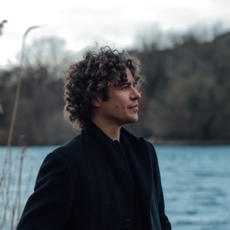Robin Ticciati & DSO Berlin - Rachmaninov: Symphony No. 2 - MusicWeb International
I’m not sure I’ve heard Robin Ticciati conduct Russian music before. On the evidence of this performance, he has a fine feel for the idiom.
We are told in the booklet that this performance presents the ‘original unabridged version’ of Rachmaninov’s symphony. In one respect that statement is redundant because the bad old days when conductors observed the “traditional” cuts are now, surely, a thing of the past. I certainly can’t recall hearing a performance or modern recording of the work which inflicts cuts. However, it’s not uncommon to find conductors missing out the exposition repeat in the first movement; Sir Simon Rattle, for example, did just that in his recent LSO Live recording (review). I much prefer to hear the repeat observed and that’s what Ticciati does; so, his reading is indeed ‘unabridged’.
This performance makes a fine impression from the very start. The Largo introduction is darkly brooding; Ticciati allows the music the space it needs and he moulds everything very convincingly and without artifice. The orchestral sound impresses too: it’s rich and sonorous – without being cloying – and the bass end of the orchestra is satisfyingly deep and solid, just as the music needs. In the Allegro moderato (from 5:05), I like the way Ticciati encourages rise and fall, ebb and flow in the music to just the right degree. His orchestra produces a warm, glowing sound; hereabouts and, indeed, throughout the symphony, the contribution of the DSO’s horn section is superb. Ticciati allows the nostalgia its head but there’s no sense of wallowing. In the Development section the dark passion in Rachmaninov’s music is well to the fore. When the exposition repeat is included, this is a huge movement – 24:04 in this performance – but Ticciati has the measure of it; his purposeful conducting keeps the music on track and he evidences a fine feel for the structure. The coda is dynamic and exciting; Ticciati is one of those conductors who has a timpani stroke on the final chord, which I think may be spurious, but I like it. Incidentally, if we’re to use the stopwatch as a guide, Ticciati is quite close to the gloriously expansive Rozhdestvensky, who takes 24:30 (review) while the slightly tauter but still enthralling Gergiev/LSO version plays for 22:31 (review).
The dynamism and excitement which ends the first movement carries over into the start of the second. But before long Rachmaninov treats us to yearning lyrical music in the second group; Ticciati phrases this passionately. The fugal episode (from 3:29) is, in the words of annotator Marina Frolova-Walker, “strident and relentless”; the present performance is suitably punchy. I think Ticciati gets this movement just right and the DSO play superbly for him.
It’s a shame the DSO’s principal clarinettist is not named; he or she gives a melting account of the wistful clarinet solo that opens the Adagio. Thus launched, the movement has a wonderfully warm, lyrical glow to it. Ticciati and his orchestra really do justice to Rachmaninov’s inspiration, and the inherent nostalgia is well to the fore but never overdone. I like the way in which Ticciati finds the right balance between warm lyricism and keeping the music on the move; he never allows it to become bogged down. I also admire the way in which he builds and eventually thrusts home the climaxes, especially the big one in the first half of the movement. He leads a ripe but never indulgent account of this glorious movement; I loved every minute of it.
The finale’s opening is bright and festive. Not long after (at 3:07) Rachmaninov treats us to a passage of ardent lyricism. Ticciati handles this very well: in my notes I’ve written “urgent nostalgia”; I hope that conveys the way he successfully gives full rein to Rachmaninov’s highly expressive writing while maintaining momentum. The ebb and flow of the movement is expertly handled as, for example, in the build-up to the moment when the opening material returns (9:07). In the last three or four minutes (from 12:07) the music builds a fine momentum, which is not dissipated in moments of lyrical dalliance, and the symphony sweeps to an exciting end.
This is a terrific account of Rachmaninov’s Second. There are many fine versions of this great symphony in the catalogue; I’ve referenced the Gergiev and Rozhdestvensky accounts and I’m conscious that there are others, including the LSO/Previn classic, though the sound of Previn’s 1973 version is somewhat showing its age and the first movement lacks the exposition repeat. I think Robin Ticciati’s recording now deserves to rank with the leaders in the field. He has a fine feel for the music and the idiom and he’s backed up at every turn by the truly excellent DSO Berlin. On this evidence I’d very much like to hear what this team would make of the Third Symphony, to say nothing of the masterly Symphonic Dances. Perhaps a project for the Rachmaninov anniversary year in 2023?
This splendid performance benefits from very fine sound indeed, Producer/engineer Philip Hobbs has given us sound that is rich and has plenty of impact. The recording suits the music very well. Hobbs’ skill means that a lot of inner detail is reported. That’s important because there’s often a lot going on under the surface in Rachmaninov’s scoring and it registers here. Marina Frolova-Walker is an excellent advocate for the symphony in her notes.


